Short & Sweet Treats discussion
Take a Coffee Break...
>
Word of the Day
Julia wrote: "INEFFABLE
1. Too great, powerful, beautiful, etc., to be described or expressed: "I feel ineffable joy at the sight of my grandchildren."
2. unspeakable: "I feel ineffable disgust at foul lang..."
LOVE IT! Another beautiful word! I have seen that word before, but you just reminded me of its meaning, Julia. :)
1. Too great, powerful, beautiful, etc., to be described or expressed: "I feel ineffable joy at the sight of my grandchildren."
2. unspeakable: "I feel ineffable disgust at foul lang..."
LOVE IT! Another beautiful word! I have seen that word before, but you just reminded me of its meaning, Julia. :)
 Thanks, Laura--whenever I watch a sunset or sunrise, my feelings are ineffable--just can't put all that wonder into words :-)
Thanks, Laura--whenever I watch a sunset or sunrise, my feelings are ineffable--just can't put all that wonder into words :-)
 BLANDISH
BLANDISH(BLAN-dish)
MEANING:
verb intr.: To coax with flattery.
ETYMOLOGY:
From Latin blandiri (to flatter).
Earliest documented use: 1301
USAGE:
"In his first speech in the Parliament, Mussolini insulted and blandished the legislature by turns."
Church and Revolution by Thomas Bokenkotter
 Love that, Laura--I'm so lucky to be surrounded by trees, and the sound of the wind interacting with them is a great wonder. John Muir said this, in his wonderful essay "A Wind-storm in the Forests". http://www.sierraclub.org/john_muir_e...
Love that, Laura--I'm so lucky to be surrounded by trees, and the sound of the wind interacting with them is a great wonder. John Muir said this, in his wonderful essay "A Wind-storm in the Forests". http://www.sierraclub.org/john_muir_e..."There is always something deeply exciting, not only in the sounds of winds in the woods, which exert more or less influence over every mind, but in their varied waterlike flow as manifested by the movements of the trees, especially those of the conifers. By no other trees are they rendered so extensively and impressively visible, not even by the lordly tropic palms or tree-ferns responsive to the gentlest breeze. The waving of a forest of the giant Sequoias is indescribably impressive and sublime, but the pines seem to me the best interpreters of winds. They are mighty waving goldenrods, ever in tune, singing and writing wind-music all their long century lives."
 Julia wrote: "I'm liking this idea of finding beautiful words; mine for today is:
Julia wrote: "I'm liking this idea of finding beautiful words; mine for today is:DIAPHANOUS
1. characterized by such fineness of texture as to permit seeing through
2. characterized by extreme delicacy of f..."
A favorite, love Botticelli!
 EPHEMERAL
EPHEMERALlasting a very short time
Examples of EPHEMERAL
"The autumnal blaze of colors is always to be treasured, all the more so because it is so ephemeral."
 ANALEMMA
ANALEMMAa plot or graph of the position of the sun in the sky at a certain time of day (as noon) at one locale measured throughout the year that has the shape of a figure 8
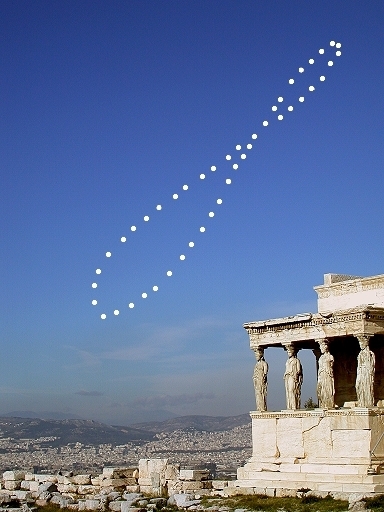
Analemma Over the Porch of Maidens
Anthony Ayiomamitis
The shape traced out by the Sun over the course of a year is called an analemma. The Sun's apparent shift is caused by the Earth's motion around the Sun when combined with the tilt of the Earth's rotation axis. The Sun will appear at its highest point of the analemma during summer and at its lowest during winter. ...This particular analemma was built up by 46 separate Sun photographs taken during 2003 in Athens, Greece. Pictured in the foreground of this composite image are pillars called the Porch of Maidens, part of the ancient Erechtheum which was completed in 407 BCE.
http://apod.nasa.gov/apod/ap081221.html
 Julia wrote: "Hmm, I've found that Flickr images won't download most of the time--might be a copyright thing?"
Julia wrote: "Hmm, I've found that Flickr images won't download most of the time--might be a copyright thing?"The photos will download its the HTML that won't work, what are you using to share the photos?
 Jen ƸӜƷ wrote: "Julia wrote: "Hmm, I've found that Flickr images won't download most of the time--might be a copyright thing?"
Jen ƸӜƷ wrote: "Julia wrote: "Hmm, I've found that Flickr images won't download most of the time--might be a copyright thing?"The photos will download its the HTML that won't work, what are you using to share th..."
I just use the "image" info when we click on that tap at the top (some html is ok).
I know you've posted a lot of pictures--mine are mainly jpg, and I'm not sure about Flickr since I don't use it. I've noticed that "png" files won't load for me.
Good luck! :-)
 Julia wrote: "Jen ƸӜƷ wrote: "Julia wrote: "Hmm, I've found that Flickr images won't download most of the time--might be a copyright thing?"
Julia wrote: "Jen ƸӜƷ wrote: "Julia wrote: "Hmm, I've found that Flickr images won't download most of the time--might be a copyright thing?"The photos will download its the HTML that won't work, what are you u..."
I had it set on the wrong setting! LOL
 Anamnesis
Anamnesis1.the recollection or remembrance of the past; reminiscence.
2.Platonism. recollection of the Ideas, which the soul had known in a previous existence, especially by means of reasoning.
3.the medical history of a patient.
4.Immunology . a prompt immune response to a previously encountered antigen, characterized by more rapid onset and greater effectiveness of antibody and T cell reaction than during the first encounter, as after a booster shot in a previously immunized person.
5. ( often initial capital letter ) a prayer in a Eucharistic service, recalling the Passion, Resurrection, and Ascension of Christ.
 DEUS EX MACHINA
DEUS EX MACHINA(DAY-uhs eks MAH-kuh-nuh, -nah, MAK-uh-nuh)
MEANING:
noun: An unexpected or improbable person or event that saves a seemingly hopeless situation.
ETYMOLOGY:
From Latin deus ex machina, deus (god) + ex (from) + machina (machine), loan translation of Greek theos apo mekhanes. Earliest documented use: 1697.
NOTES:
In ancient Greek and Roman drama, often a god was lowered onto the stage by means of a crane to help a protagonist from a hopeless situation.
USAGE:
The ending of Lord of the Flies is an example of deus ex machina, in the form of the naval officer who saves Ralph.
And, of course, the Cat :-)

 lickspittle
lickspittlePRONUNCIATION:
(LIK-spit-l)
MEANING:
noun: A servile flatterer.
ETYMOLOGY:
From lick, from Old English liccian + spittle, from old English spittan. A term with a similar idea is brown-noser. Earliest documented use: 1825.
USAGE:
"Murdoch is one of the greatest lickspittles in history, always prepared to kowtow to power whatever its shape or nature, in order to make more money for himself."
Martin Rowson; The Dog Allusion: Pets, Gods, and How to be Human; Vintage; 2008.
"gezellig"
Having company with a pleasant, friendly ambience.
Cozy atmosphere
An upbeat feeling about the surroundings.
Having company with a pleasant, friendly ambience.
Cozy atmosphere
An upbeat feeling about the surroundings.
 tosspot
tosspotPRONUNCIATION:
(TOS-pot)
MEANING:
noun: 1. A drunkard. 2. An idiot.
ETYMOLOGY:
From the phrase to toss off (to drink rapidly). Earliest documented use: 1568.
USAGE:
"It's like a cast of tosspots who don't know their limit and then get into a car."
Tim Goodman: Television; The San Francisco Chronicle; Nov 2, 2007.
 LaLaLa Laura wrote: ""gezellig"
LaLaLa Laura wrote: ""gezellig"Having company with a pleasant, friendly ambience.
Cozy atmosphere
An upbeat feeling about the surroundings."
A good word!
 hayseed
hayseedPRONUNCIATION:
(HAY-seed)
MEANING:
noun: An unsophisticated person who comes from a rural area.
ETYMOLOGY:
Alluding to a person with straw in his clothes or smelling of hayseed and regarded as a country bumpkin. Earliest documented use: 1577.
USAGE:
"A hayseed with a Midwestern twang, Carnegie arrived in New York in his 20s with the usual mix of big dreams and shallow pockets."
How to Succeed; Dale Carnegie; The Economist (London, UK); Nov 2, 2013.
 ABDERIAN
ABDERIANGiven to incessant laughter
Allusion to Democritus, the laughing philosopher, born in Abdero. Democritus (460 BCE - 370 BCE) was the founder of atomism and was known as the “Laughing Philosopher", for his tendency to mock fellow citizens for their follies.]
 Same here, Laura, but with my daughter :-) She was here for the holidays, and my sides still ache (in a good way)!
Same here, Laura, but with my daughter :-) She was here for the holidays, and my sides still ache (in a good way)!
 BRONTIDE
BRONTIDE a low muffled sound like distant thunder heard in certain seismic regions esp. along seacoasts and over lakes and thought to be caused by feeble earth tremors
 MULLIGRUBS
MULLIGRUBS(MUL-i-grubz) noun
1. Grumpiness; colic; low spirits.
2. An ill-tempered person.
[From mulliegrums, apparently from megrims (low spirits).]
"I got the dismals. Not exactly the dumps or mulligrubs, more like moody and uncertain, as when you don't know what's going to happen next." Fred Schmidt; Middle East Thing Puts Chill on Festivities; San Antonio Express-News (Texas); Dec 30, 1990.
(Jen, I'm not on Facebook, but see that Grandiloquent has a good picture for this word lol :-)
 ruck
ruckPRONUNCIATION:
(ruk)
MEANING:
noun: 1. A large mass, especially of ordinary people or things. 2. A crease or wrinkle.
verb tr., intr.: To make a crease or to become creased.
ETYMOLOGY:
From Old Norse hrukka (wrinkle, fold). Ultimately from the Indo-European root sker- (to turn or bend), which is also the source of ranch, rank, shrink, circle, circa, crisp, corolla, search, ring, curb, ridge, curve, corolla, and coronary. Earliest documented use: 1225.
USAGE:
"Any genuine pilgrim would have to fight his way past a ruck of tourists to get close to such an object."
Keith Miller; St Peter's; Profile Books; 2010.
"She ran across the room and tripped on the rucked carpet under the bed."
Liz Ryan; Sometimes a Rogue; Hodder & Stoughton; 1997.
 "Ocean is more ancient than the mountains, and freighted with the memories and the dreams of Time."
"Ocean is more ancient than the mountains, and freighted with the memories and the dreams of Time."H. P. Lovecraft
 Great one, Jen--he could weave words into images as not many others can.
Great one, Jen--he could weave words into images as not many others can. “The most merciful thing in the world, I think, is the inability of the human mind to correlate all its contents. We live on a placid island of ignorance in the midst of black seas of the infinity, and it was not meant that we should voyage far.”
― H.P. Lovecraft, The Call of Cthulhu and Other Weird Stories
Books mentioned in this topic
The Clicking of Cuthbert (other topics)The Crucible (other topics)
A History of Modern Drama, Volume I (other topics)
Toy Stories: Photos of Children from Around the World and Their Favorite Things (other topics)
The Book of Life (other topics)
More...
Authors mentioned in this topic
Leo Tolstoy (other topics)P.G. Wodehouse (other topics)
Leonardo da Vinci (other topics)
Theodore Roethke (other topics)
David Krasner (other topics)
More...



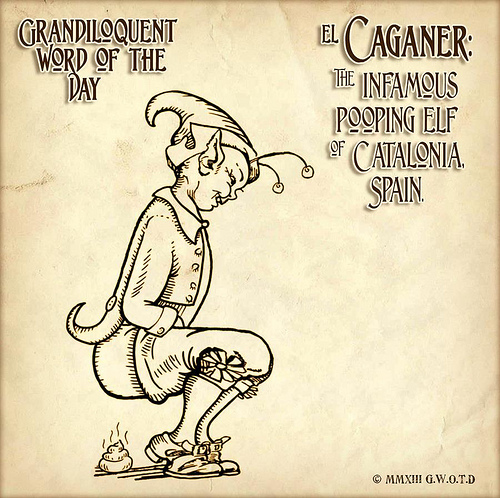


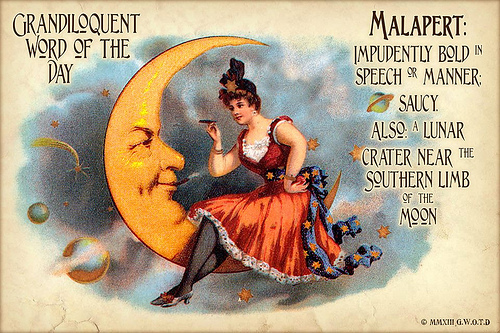
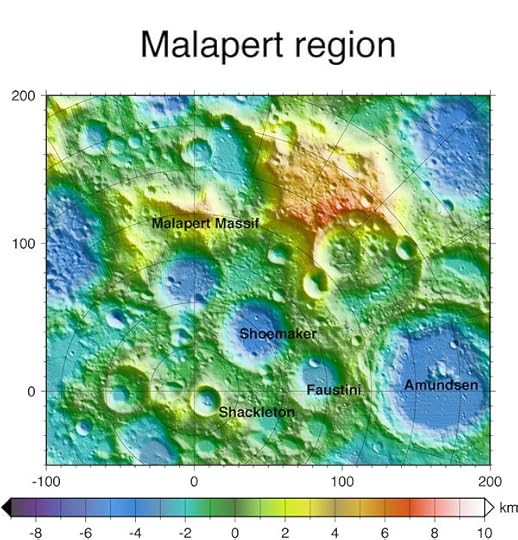
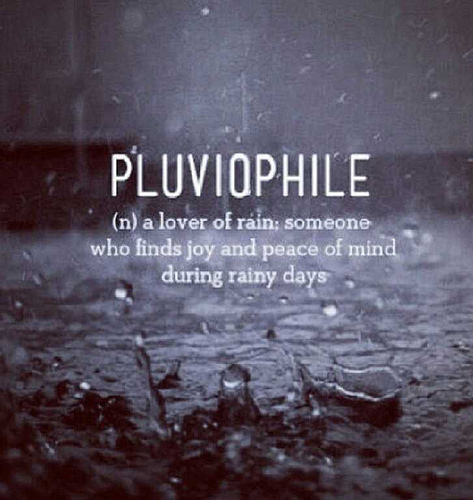
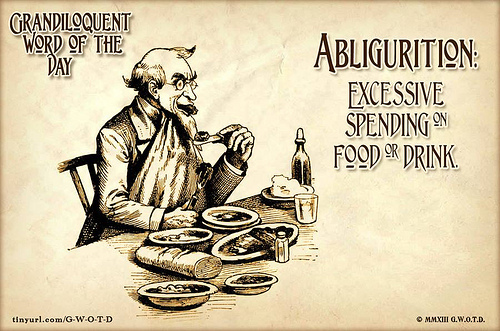


1. Too great, powerful, beautiful, etc., to be described or expressed: "I feel ineffable joy at the sight of my grandchildren."
2. unspeakable: "I feel ineffable disgust at foul language."
3. not to be uttered : "The letters YHWH are often used to indicate the ineffable name of Jehovah>"
Origin of INEFFABLE
Middle English, from Latin ineffabilis, from in- + effabilis capable of being expressed, from effari to speak out, from ex- + fari to speak — more at ban
First Known Use: 14th century